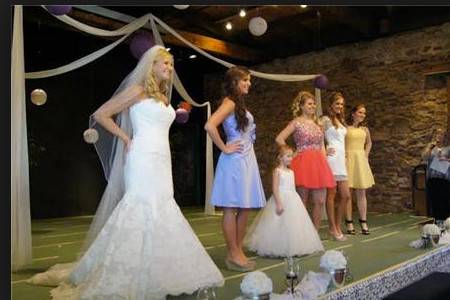Strategy or tactics: Building a weddings franchise
the first question is: Do you want it, or just some incremental revenue?
Local media companies often play to their strengths, selecting initiatives they are largely already staffed for, experienced in, or which they can find a turnkey vendor to help. This workable approach sometimes creates solid tactical thinking, but sometimes lacks a more strategic focus.
An example of different paths to conquering the same franchise comes from three case studies of companies, all of whom did a respectable if not bang-up job of adding revenues from the bridal category:
A leading events evangelist, Jason Taylor, president of the Chattanooga Times Free Press, puts on a wedding event that clears $100,000 in new revenues and with an estimated 50% to 70% profit margin. Nice work. The Times Free Press has the benefits of already compiling wedding and engagements announcements which it charges $100 each to publish online, with an upsell to a $500 wedding announcement package.
Then there is the radio station that simply throws a contest and takes $8000 out of the market for its annual Wedding GiveAway.
And a television site that sells $30,000 into a new "wedding page" - supplied by a third party turnkey vendor.
These examples are all top notch initiatives that show new and effective ways to tap revenues from the wedding services category.
In some ways, these three efforts are also predictable:
1. The radio station throws another great contest and spikes traffic by 500,000 impressions, but fails to secure the franchise or sell merchants a key asset: Its list of registered brides, each worth a national average of $27,000 in spending over a brief 14 day period around the wedding.
2. Television readily adapts website content without pushback from a pesky editorial department. But only lightly engages the audience and merchants it has developed. Maybe another turnkey content partnership will be enough to secure a few more dollars - but are they leaving more money on the table as they fall behind more invested competitors?
3. The newspaper company's wedding announcements are taken online - and tie-in nicely to the event, which also has a contest. Granted that announcements are impossible to find via a direct search of the website. But is it coincidence that the company with the most strategic tie-ins also has claim to the most revenues?
Chattanooga Times Free Press is an exceptional media company in that it has a world-class revenue-producing events department. Still, the strategic investment for this was only two to three staff members to support more than a million in new, high-ROI revenues.
Our point is simply this: Companies tend to do what they are tactically good at, and what they know will pay off in ways they can show an ROI. But sometimes what looks like a big win, is really just a nice effort picking off low hanging fruit.
Strategic thinking means looking at the category overall - how much revenue is there and where is it? In events? In magazines? Contests? What will gain the most revenues working together?
Strategy always starts with an analysis of the competition for the category itself, and how and why the marketplace actually works. In short requires understanding the current value proposition in the overall marketplace.
Who owns the data for couple planning to get married? Who owns the lead wedding event? Who owns the announcements marketplace in the the search results? Are announcements free or paid? Are brides happy with the way they find services and vice versa?
Should a media station partner with the local promoter on a contest, or sell merchants directly?
And here's another question: Could a radio station compete for the franchise by offering their merchant partners the data on brides who register for a contest, in a permanent area on its site? Offer free announcements when the print media announcements are paid? Create a smaller "boutigue" event outside the partnership? Could they create a "Vote for your favorite Wedding PlayList" contest as audio content (using playlist tools from SocialRadio)?
And finally, is the category "worth" going after given other opportunities? That is, what is the total opportunity in this category compared to others for the same effort invovled.
We don't know whether a radio station should go after the bridal franchise, or which genre of station would be ideal (though adult contemporary with its young female demo would seem a logical choice).
What is important to your company is that leadership ask these questions early and often.
One thing is true: Media who are best of class tactically are also in the best position to go after these franchises strategically in the years ahead. But the companies with strategic thinkers at the top will ultimately win. We see this time and time again.
Of the three case studies mentioned here, it's easy to see which one makes the most money - it's the newspaper with it's gigantic wedding event.
Strategically, however, the television station has also grabbed a key opportunity to provide free engagement announcements in a market where the local newspaper does not promote "engagements" or "weddings" anywhere on its web site. Newspapers are really well positioned if leadership is interested in owning this franchise in the future. If not, market by market, the franchise is up for grabs.






